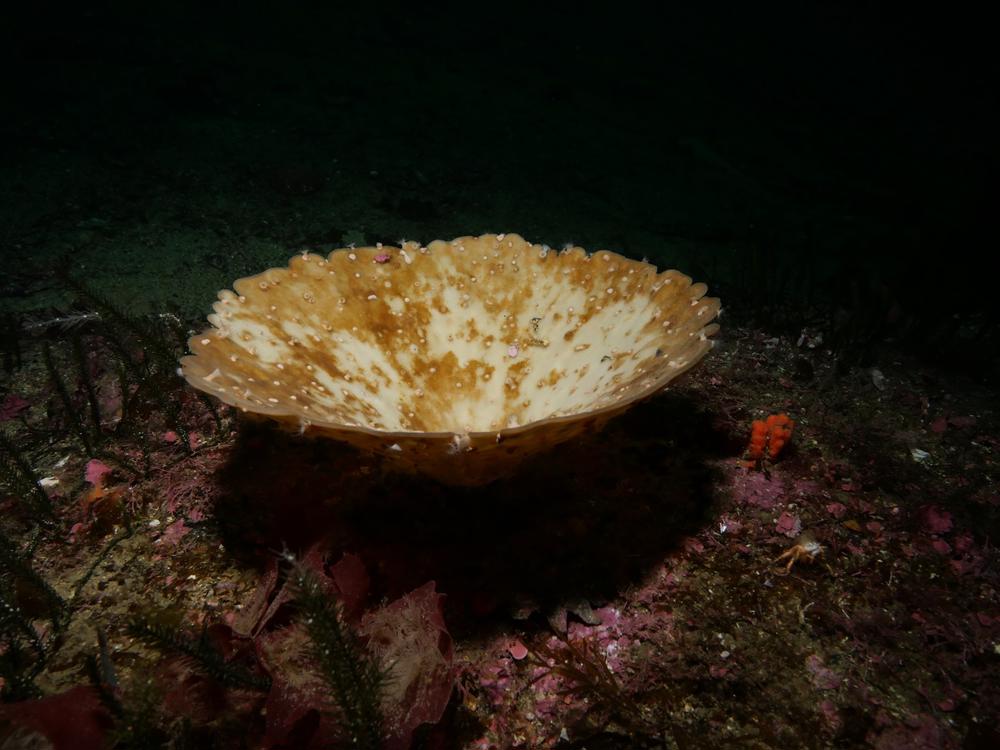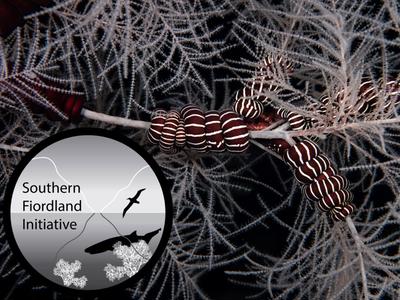
Supporting research on sponge bleaching
Widespread sponge bleaching was reported for the first time in New Zealand in May 2022 and we need funds to study this significant event.
Nationwide

In May 2022 Professor Bell’s research group at Victoria University of Wellington reported the first case of widespread sponge bleaching in Fiordland. Sponges that are normally brown in colour had lost the photosynthesising organisms that live inside them and were completely white in colour. We are looking for funding to support research to determine why exactly this has happened and what the consequences of this event are.
What are sponges important? There are over 800 species of sponge in NZ waters, and they have several roles in ensuring ecosystems function naturally. Sponges pump lots of water through their bodies, removing all the small food particles. This food is then transformed inside the sponges and released, where it becomes available to small creatures on the sea floor. These small organisms are then eaten by larger organisms including the species that we like to eat.
Why is this bleaching event significant? This is the first report of sponge bleaching in New Zealand, and it impacted millions of sponges. Nothing like this scale of cold-water sponge bleaching has been reported anywhere in the world.
What has caused this? We believe the mostly likely cause is extremely warm sea water temperatures this summer in Fiordland, more than 5 degrees warmer than normal, but we need more information.
What will the money be used for? We will use donations to support research on the impacts of temperature stress on sponges both in Fiordland and across New Zealand.
About us
The Victoria University of Wellington Foundation manages donations to support projects of strategic importance to the University.
Use of funds
We will use donations to support research on the impacts of temperature stress on sponges both in Fiordland and across New Zealand.
Latest update
New surveys to assess long-term impacts of major sponge bleaching event 1 July 2022
While we have conducted some initial research last month which suggests the sponges are still alive for now, we would like to raise funds to pay for the next research cruise late 2022 to assess if the sponges have survived the winter.
Latest donations





Who's involved?
Our other pages
Page Q&A
Ask a question hereAny concerns?
Report this pageThank the donor
Your message will be displayed on the page and emailed to the donor.
Your new message will also be emailed to the donor.
Saving a blank entry will delete the current comment.

